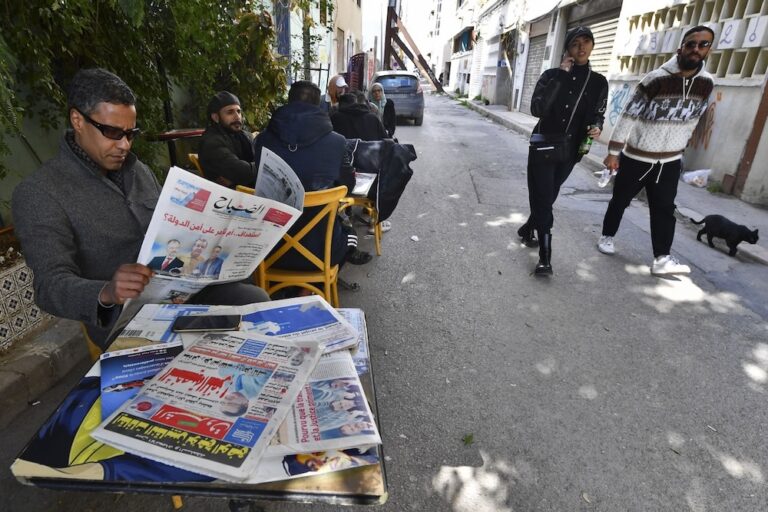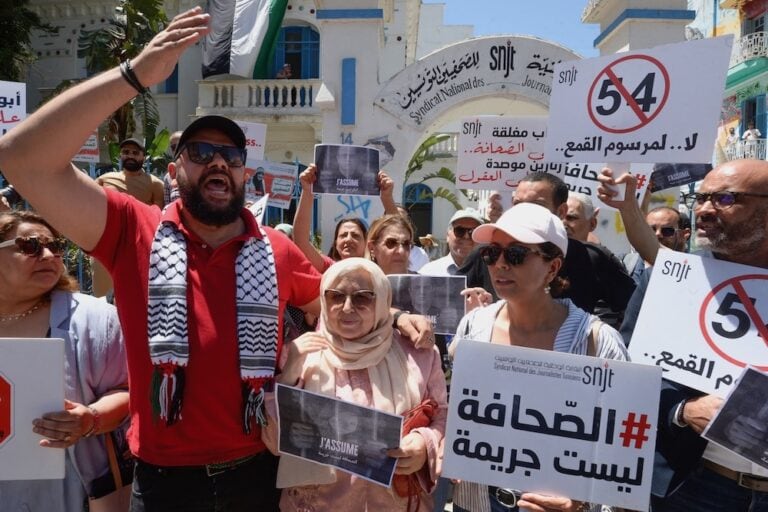Tunis's Court of First Instance sentenced academic and rights defender Dr. Khedija Arfaoui to eight months in prison for "publishing false news liable to disrupt public order".
(OLPEC/IFEX) – On 4 July 2009, Tunis’s Court of First Instance sentenced academic and rights defender Dr. Khedija Arfaoui to eight months in prison for “publishing false news liable to disrupt public order”, under article 49 of the Tunisian press code. Arfaoui is also a member of the Tunisian Association for Research and Development (AFTURD).
Arfaoui posted an article from a secondary source on her page on the social networking site Facebook, about the kidnapping of children in Tunisia. Persistent rumours about the kidnapping of children for organ smuggling have rocked Tunisia since May of this year, prompting the interior minister to call a press conference in which he formally denied the allegations.
Following this public statement, news of the arrest of the academic “responsible for spreading the rumours” was announced in all the state-run and private newspapers.
According to Arfaoui’s lawyers, the accused only learned of her 6 June trial date after reading it in “Echourouk” and “Le Temps”, newspapers owned by regime loyalists, on 31 May. She did not realise at first that the article was about her. She only received her court summons the day before her trial was scheduled to take place. Her defense team, meanwhile, had no access to her files during the first hearing; they were only made available two weeks later for her second trial, on 27 June. Similarly, the verdict was published in the newspapers on 4 July, before her lawyers were informed of the decision.
OLPEC:
– considers this verdict to be unjust and out of all proportion with the act of sending a message on Facebook to a very limited number of people; a number of different media outlets had already reported the rumour and faced no consequences; the elements of a crime have not been met and the court has provided no proof of a link between the message posted by Arfaoui and the public rumours circulating;
– believes that the case against Arfaoui is politically motivated, that the court was influenced in its decision and that the relentless hounding of Arfaoui can only be explained by the government’s desire to make an example of her in order to stop a rumour that she did not even start, and which, for reasons still unknown, appears to be particularly troublesome to the authorities, who have now taken special security measures;
– believes that the charge of “publishing false news liable to disrupt public order” is without legal base, since the “public” to which Arfaoui addressed herself is restricted to a private group of several dozen Facebook “friends”;
– calls for all lawsuits against Arfaoui to be dropped and offers its full support to her;
– demands that corporal punishment for violating press laws be abolished.
Sihem Bensedrine
Secretary General, OLPEC


